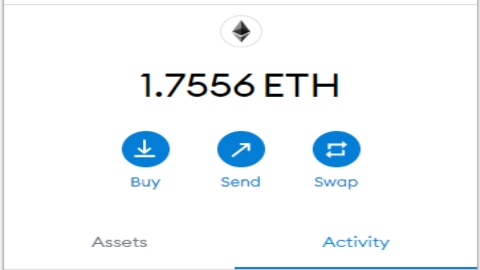Despite the fact that last Friday Wall Street ended the week positive, this Monday futures fell sharply, after a weekend marked by the increased intensity of the conflict in Ukraine and new sanctions against Russia. The Dow Jones closed Friday 2.51% higher, the S&P 500 added 2.24% and the NASDAQ 100 added 1.53%.
This Monday, by contrast, futures show falls, 1.08% for the Dow Jones, those of the S&P 500 yield 1.31% and those of the Nasdaq 1.23%.
Falls that reach the heat of the conflict in Ukraine and the repercussions of the sanctions of The United States and its Western allies the Russian central bank and some lenders of the Swift messaging system, crucial for global payments to isolate them from the international financial system and make it difficult to finance them, whom he will expel-
But beyond this, concerns remain about inflation that could be exacerbated by disruptions to key resources such as oil, natural gas, wheat and metals. “Central banks are obliged to follow their roadmap at a time when uncertainty about economic growth is growing,” XTB experts acknowledge. This week will be key Powell meeting before Congress (Wednesday and Thursday) in which he will have to explain how he intends to tackle inflation at the same time that the war in Ukraine is worsening the economic outlook. Powell is expected to stick to the idea of raising rates on March 16, although the market now sees a 50 basis point hike as unlikely.
In terms of business results, of the 472 North American companies in the S&P 500 that have disclosed figures for 4Q21, they show us that 76.9% exceed expectations.
Highlight the resilience in the S&P 500 of the “value” sectors in the 5 days that we have been in the armed conflict in Ukraine.
In the business arena, the Securities and Exchange Commission (SEC) is investigating whether recent stock sales by Elon Musk and his brother violated insider trading rules. Tesla shares closed the session on Friday with increases of +1.14%, but accumulate setbacks so far this year of -23.36% YTD
other markets
Oil rose, while the ruble plunged almost 30%, to a new historical low, after Western countries imposed new sanctions on Russia for its invasion of Ukraine, including the blockade of some banks of the international system of SWIFT payments. Right now, Brent rose 4.70% to $98.54, while West Texas rose 4.81% to $96 a barrel.
Oil prices have surged on escalating sanctions against Russia over its invasion of Ukraine, which in turn prompted President Vladimir Putin to put his country’s nuclear deterrent on high alert.
The ruble collapses this Monday to a historic low and the dollar soared against most of its peers, after Western nations announced new sanctions to punish Russia for its invasion of Ukraine, and President Vladimir Putin put his nuclear forces on high alert. The ruble fell as low as 119 to the dollar in early trading, surpassing its previous low of 90 rubles to the dollar. It was last traded at 109. The falls came despite the Russian central bank announcing a series of measures on Sunday to support domestic markets, after Western allies stepped up sanctions, including block certain banks from the SWIFT international payment system. Restrictive measures were also imposed on the Bank of Russia to prevent it from deploying its international reserves in order to undermine sanctions.
ANDthe central bank of Russia announced on Sunday a series of measures to support domestic markets as it struggles to manage the mounting fallout from harsh Western sanctions imposed over the weekend in retaliation for Moscow’s invasion of Ukraine. The central bank said it would resume buying gold on the domestic market, launch an unlimited buyback auction and ease restrictions on banks’ open foreign exchange positions. It also increased the range of securities that can be used as collateral for loans and ordered market players to reject offers from foreign clients to sell Russian securities. The moves came after Western allies stepped up sanctions on Saturday, taking steps to banish Russia’s big banks from the world’s leading payment system, SWIFT, and announcing other steps to limit Moscow’s use of a trust fund. $630 billion war to undermine sanctions.
In the cryptocurrency market, Bitcoin falls 2.64% to $38,365.6. But beyond that, Bitcoin shows its own dynamics as a differentiated asset in the invasion of Moscow and the effects in both countries.
In addition, the futures gold they rise 1.11% (1,908.30 dollars); and the profitability of 10 year US bond relaxes to 1.918%
Schedule of the day
This Monday, in the US, the data to follow will be the Chicago Purchasing Managers’ Index (PMI) for February and the Dallas Fed’s manufacturing business index for the same month.
